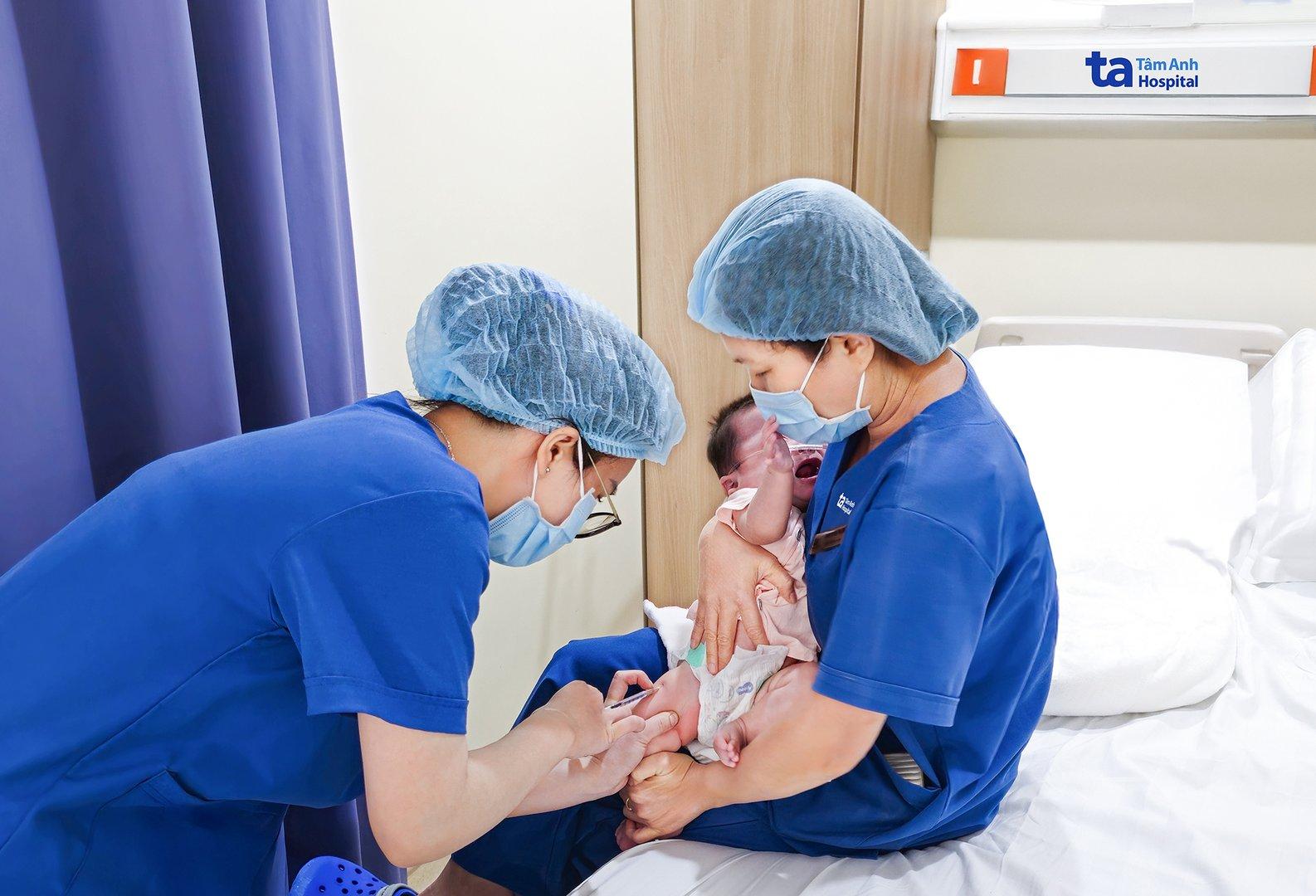Respiratory syncytial virus (RSV) is a common cause of lung and respiratory tract infections, easily spread from person to person, according to Dr. Nguyen Thi Hanh Trang, deputy head of the Pediatrics Department at Tam Anh General Hospital in Ho Chi Minh City. Most children contract RSV before the age of two. Outbreaks typically occur during seasonal changes, when humid weather and fluctuating temperatures create ideal conditions for the virus to thrive and spread. RSV can spread through respiratory droplets or contact with contaminated surfaces, remaining viable for up to 6 hours on these surfaces, 25 minutes on contaminated skin, and 4 weeks in the bodies of children and immunocompromised individuals.
While RSV often causes mild, cold-like symptoms, some children are at risk of serious lung infections. Premature babies, those with congenital heart disease, or bronchopulmonary dysplasia are particularly vulnerable to severe RSV infections. RSV is a leading cause of hospitalization in infants during their first year of life, often leading to bronchiolitis and pneumonia.
Dr. Trang explains that premature babies haven't had enough time to fully develop in the womb, resulting in immature respiratory systems, underdeveloped lungs, and weak respiratory muscles. Their immune systems are also immature, making them susceptible to rapid disease progression. Without prompt treatment, complications such as bronchiolitis, severe pneumonia, acute respiratory failure, and respiratory arrest can occur, leading to brain damage from oxygen deprivation.
Premature babies with severe RSV infections require hospitalization for monitoring, respiratory support if needed, fluid and nutritional supplementation for recovery, and follow-up appointments after discharge.
For instance, 3-month-old Thu, born prematurely at 30 weeks, was hospitalized with RSV pneumonia after a week of persistent coughing and phlegm. She experienced difficulty breathing and a mild fever.
Similarly, 7-month-old Tung, born prematurely at 26 weeks, developed a cough and wheezing. After two days of treatment with antibiotics at a clinic, his condition worsened, leading to severe respiratory distress and admission to Tam Anh General Hospital.
Both infants tested positive for RSV.
 |
A premature baby is monitored and receives respiratory support at the Neonatal Center, Tam Anh General Hospital. Photo courtesy of the hospital |
A premature baby is monitored and receives respiratory support at the Neonatal Center, Tam Anh General Hospital. Photo courtesy of the hospital
Due to her prematurity and weakened immune system, combined with narrow airways, Thu was at high risk of respiratory failure. She received respiratory support, including oxygen therapy and physiotherapy. After three days, her cough subsided, her breathing stabilized, and she was discharged after a week.
Tung, born extremely prematurely, had underdeveloped lungs with few and fragile alveoli, coupled with a weak immune system. He required high-flow nasal cannula (CPAP) oxygen therapy, along with phlegm suction, intravenous fluids, and electrolytes. After over a week, his health improved, and his breathing stabilized, though continued monitoring was necessary to prevent complications.
 |
A newborn receives a monoclonal antibody injection to prevent RSV. Illustrative photo: Tam Anh General Hospital |
A newborn receives a monoclonal antibody injection to prevent RSV. Illustrative photo: Tam Anh General Hospital
"Currently, there is no vaccine or specific treatment for RSV in children, so prevention is paramount, especially for premature babies," Dr. Trang said. Palivizumab, developed by AstraZeneca and approved by the US Food and Drug Administration (FDA), has been licensed for use in Vietnam by the Ministry of Health.
Since May, Tam Anh General Hospital has been administering Palivizumab, a monoclonal antibody injection, to prevent RSV-related lower respiratory tract infections in high-risk infants. This includes infants under 6 months old born prematurely, and children under 2 years old with underlying congenital heart conditions or chronic lung disease. The hospital has seen a significant increase in respiratory illness hospitalizations since May, including many infants and young children who hadn't yet received the recommended preventative injection.
Parents can protect their children by practicing frequent handwashing, keeping toys, clothes, blankets, and bed linens clean, avoiding smoking and secondhand smoke, and minimizing exposure to crowds, public places, and individuals with colds or fevers.
Dinh Lam
*Names have been changed.
| Readers can submit questions about children's health here for doctors to answer. |












